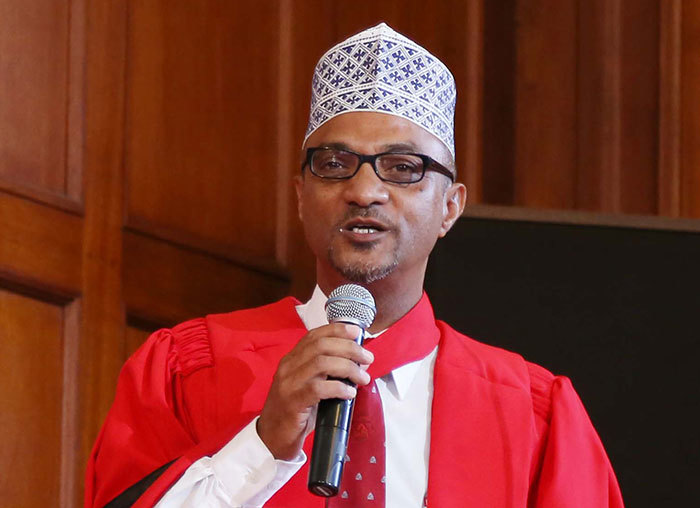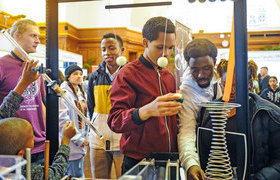'Revive the noble struggle for social justice'
16 December 2014 | Story by Newsroom
Reconciliation and social justice were top of mind at the humanities graduation ceremony held on the morning of the Day of Reconciliation.
UCT alumnus and speaker at the event, Imam Dr Rashied Omar, urged graduands to reflect on the privileges accompanying a higher education qualification, adding that a "conscientious graduate should be someone who avoids the alluring trap of individualism and becomes a socially conscious and responsive citizen".
Omar, a research scholar of Islamic Studies and Peacebuilding at the Kroc Institute for International Peace Studies at the University of Notre Dame in America, recalled his student days at UCT in the late seventies and early eighties, which were defined by the struggle for social justice. "We entered UCT under protest and willingly made sacrifices such as refusing to participate in university sports and attending graduation ceremonies because of our commitments to the struggle," he explained.
He pointed out that 20 years into democracy, South Africans' commitment to social justice is waning.
"While on this Day of Reconciliation we can celebrate many social, political and economic gains, we also have to acknowledge that after 20 years of democratic rule, our society remains deeply divided. A significant proportion of our population remains poverty stricken; their job prospects remain limited; their employers continue to exploit them; they endure poor-quality health and education services; they are dependent on often hazardous public transport systems; and their communities are ravaged by drugs and gang violence."
He challenged the graduate class of 2014 is "to revivify this noble struggle for social justice" – by strengthening the ranks of civil society, supporting campaigns for economic justice, supporting Chapter 9 institutions like the Public Protector and by "engaging in modest individual acts of compassion and benevolence ... which collectively can contribute immensely to social transformation and socio-economic justice".
 UCT Chancellor Graça Machel encouraged graduands to transform society by really getting to grips with the challenges in their chosen sectors.
UCT Chancellor Graça Machel encouraged graduands to transform society by really getting to grips with the challenges in their chosen sectors.
Reconciliation involves more than just tolerance
UCT Chancellor Graça Machel encouraged graduands to transform society by really getting to grips with the challenges in their chosen sectors. The fields she emphasised specifically were education and social development.
"You must offer generations to come the pride of producing children who are equipped not only in knowledge, but also in values, behaviour, attitudes – children and youngsters not only comfortable within themselves, but also with 'the other'. The divisions in this society, whether they are based on race or gender, exist because we fail to embrace 'the other'."
She stressed that reconciliation went beyond mere tolerance. "On this day of your graduation it is also reconciliation day. I want to call it day of acceptance of one another. My wish for you is that in looking back on this day in 20 to 30 years, you are able to trace and clearly identify your personal contribution to transforming us into a winning nation," she said in closing.
Download Rashied Omar's speech.
Share the excitement of #UCTGrad2014 with us on Facebook, Twitter and YouTube.
Story by Abigail Calata. Photos by Je'nine May.
 This work is licensed under a Creative Commons Attribution-NoDerivatives 4.0 International License.
This work is licensed under a Creative Commons Attribution-NoDerivatives 4.0 International License.
Please view the republishing articles page for more information.










